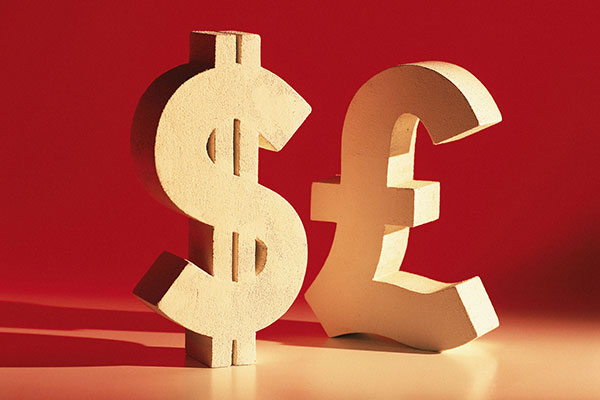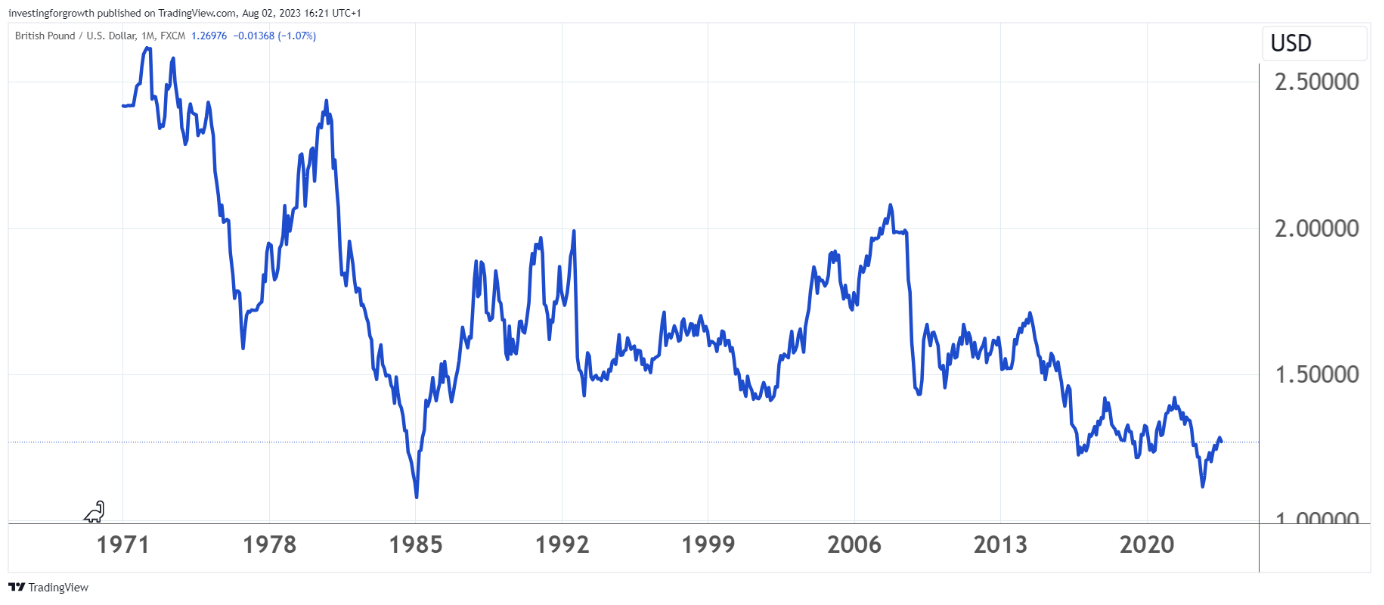How currency fluctuations affect your investments
It’s not always clear, but the volatile currency markets can have a significant effect on your investment portfolio. Here’s why foreign currency is the hidden share price driver.
10th August 2023 11:00
by Richard Hunter from interactive investor

It’s summer holiday season, so for those lucky enough to be heading off for hopefully sunnier climes, thoughts naturally turn to swapping pounds and pence for foreign currency.
While not always obvious, changing FX rates can have significant implications for investment performance. It might be the impact on company profits of doing business globally, or on dividends when converting dollar or euro-denominated payouts back to sterling.
- Learn with ii: How to Buy Shares| Top UK Shares | Cashback Offers
The effect is best explained using this simple example:
In round numbers, sterling is currently at $1.28 against the US dollar, so £10,000 would buy $12,800 (10,000 x 1.28).
Imagine that in a year’s time the dollar has strengthened so that £1 only buys $1.10. In converting your dollars back into a weaker pound, your $12,800 is now worth approximately £11,640 (12,800 ÷ 1.10), a profit of £1,640.
So far, so simple.
Let’s say the $12,800 had been used to buy an American stock ABC Inc at $100 per share. After a year the share price has not moved, so the investor decides to sell the 128 shares. In converting back to sterling, the same profit of £1,640 is realised - because, as above, the dollar buys more pounds this time - even though the share price has been flat.
Indeed, if the price had moved up by 10% to $11, the investor would realise 128 x $11 ($14,080), a sterling equivalent of £12,800 representing a profit of £2,800 on the original £10,000 investment, made up of both the share price appreciation and the favourable move between the pound and the dollar.
Welcome to the world of currency risk and your investments.
Currency and company shares
The effect of currency is most apparent when buying individual overseas stocks yourself. It can be negative as well as positive, certainly if sterling had strengthened against the dollar in the period used in the example above.
However, even if your portfolio only consists of UK shares purchased in sterling, there is also the possibility of indirect exposure to currency risk.

In the FTSE 100 index, for example, it is estimated that around 70% of company earnings are generated overseas, and most of that figure from the US.
As such, profits made abroad would - as in our first example above when the dollar strengthened against the pound - be more valuable when translated back into sterling. This helps explain the slightly counterintuitive fact that if sterling strengthens against the dollar, and all things being equal, there will be a negative impact on the FTSE 100.
By sector, companies with the heaviest exposure to the US tend to be the oils, miners and pharmaceuticals. There are also businesses such as HSBC (LSE:HSBA) and Standard Chartered (LSE:STAN), where most income is derived from Asia. This has a knock-on impact to those companies and others with a strong exposure to the region like Prudential (LSE:PRU) and Burberry Group (LSE:BRBY).
- Investors to receive £5.4bn of holiday money in August
- How UK investment tax compares with these five holiday hotspots
Remember too that the impact of currency is also seen on dividends. Many of the more generous UK-listed companies pay dividends in US dollars, including BP (LSE:BP.), Shell (LSE:SHEL), AstraZeneca (LSE:AZN) and Rio Tinto (LSE:RIO). Unilever (EURONEXT:UNA) and Vodafone Group (LSE:VOD) pay their dividends in euros.
The same principles of sterling conversion apply here, of course, again subject to the performance of the pound against the relative currency. A recent report from Link Group estimated that the strength of the US dollar in 2022 added £6 billion to dividends paid by UK companies given currency effects.
In a global investment landscape, currency exposure is almost unavoidable, be that directly or indirectly, and investors should factor this into their decision-making process when considering buying shares.
Underpinning such a decision, whatever the country or currency, the investor will still be largely driven by the more fundamental aspects of the individual share, which will include things like its economic moat, growing and sustainable profits, a strong dividend record and its commercial advantages over other companies in its sector.
These articles are provided for information purposes only. Occasionally, an opinion about whether to buy or sell a specific investment may be provided by third parties. The content is not intended to be a personal recommendation to buy or sell any financial instrument or product, or to adopt any investment strategy as it is not provided based on an assessment of your investing knowledge and experience, your financial situation or your investment objectives. The value of your investments, and the income derived from them, may go down as well as up. You may not get back all the money that you invest. The investments referred to in this article may not be suitable for all investors, and if in doubt, an investor should seek advice from a qualified investment adviser.
Full performance can be found on the company or index summary page on the interactive investor website. Simply click on the company's or index name highlighted in the article.